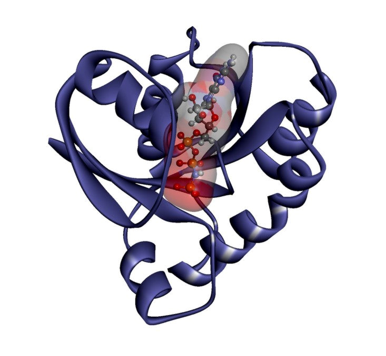Growing evidences indicate that resistance to KRAS inhibitors is heterogeneous and that the identification of specific molecular mechanisms (acquired versus adaptive) needs to be taken into account for subsequent treatment indications. Published evidences, together with the preclinical results described here demonstrate the potential utility of tri-complex KRASG12C inhibitors that target the active state of KRASG12C for the treatment of a subset of patients developing adaptive resistance to covalent RAS(OFF) inhibitors.
KRAS is the most frequent human oncogene taking into account both its high prevalence and its broad cancer distribution. This has led to tremendous efforts in the last decades aimed at designing clinically relevant treatments that have nonetheless invariably produced disappointing results.
Medicinal chemistry approaches have resulted in the development of two specific inhibitors of the KRASG12C allele, which covalently lock the oncogene in the inactive GDP-bound state. Two of these molecules, sotorasib and adagrasib, are approved for the treatment of adult patients with KRASG12C-mutated previously treated advanced non-small cell lung cancer. Drug treatment imposes selective pressures leading to the outgrowth of drug-resistant variants. Mass sequencing from patients’ biopsies identified a number of acquired KRAS mutations -both in cis and in trans– in resistant tumors.
In the recently published paper “RAS-ON inhibition overcomes clinical resistance to KRAS G12C-OFF covalent blockade”, the research groups of Prof. Chiara Ambrogio (University of Turin), Dr David Santamaria (Universidad de Salamanca), and Prof. M. Cereda (IIGM) demonstrated that disease progression in vivo can also occur due to adaptive mechanisms and increased KRAS-GTP loading. Using the preclinical tool tri-complex KRASG12C-selective covalent inhibitor, RMC-4998 (also known as RM-029), that targets the active GTP-bound (ON) state of the oncogene, we provide a proof-of-concept that the clinical stage KRASG12C(ON) inhibitor RMC-6291 alone or in combination with KRASG12C(OFF) drugs can be an alternative potential therapeutic strategy to circumvent resistance due to increased KRAS-GTP loading.
